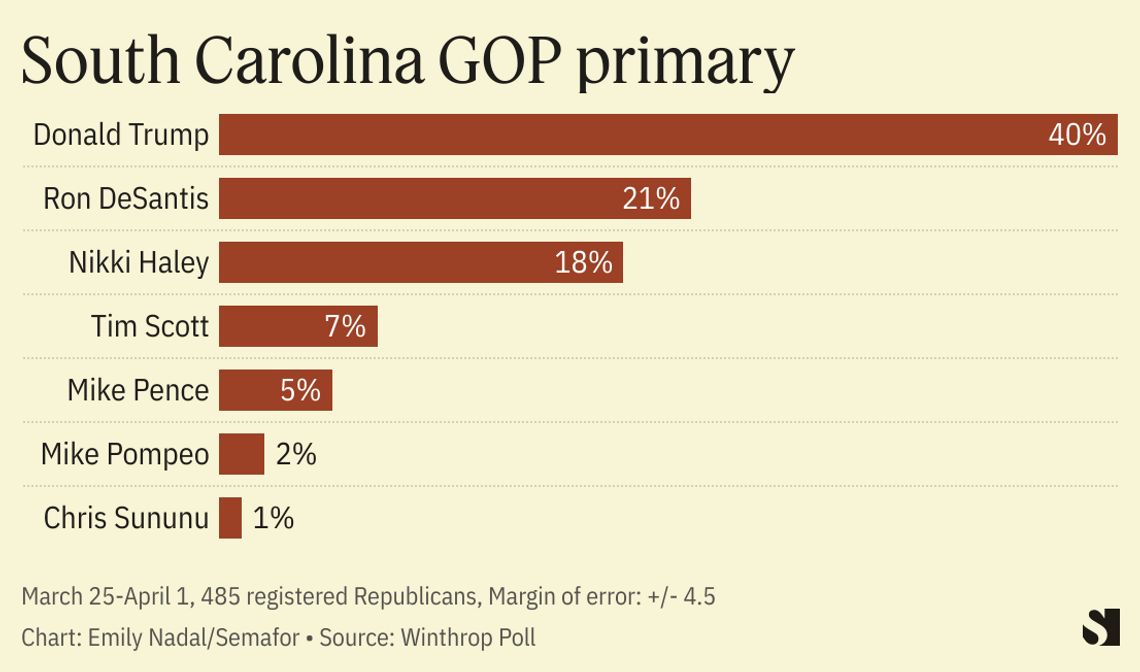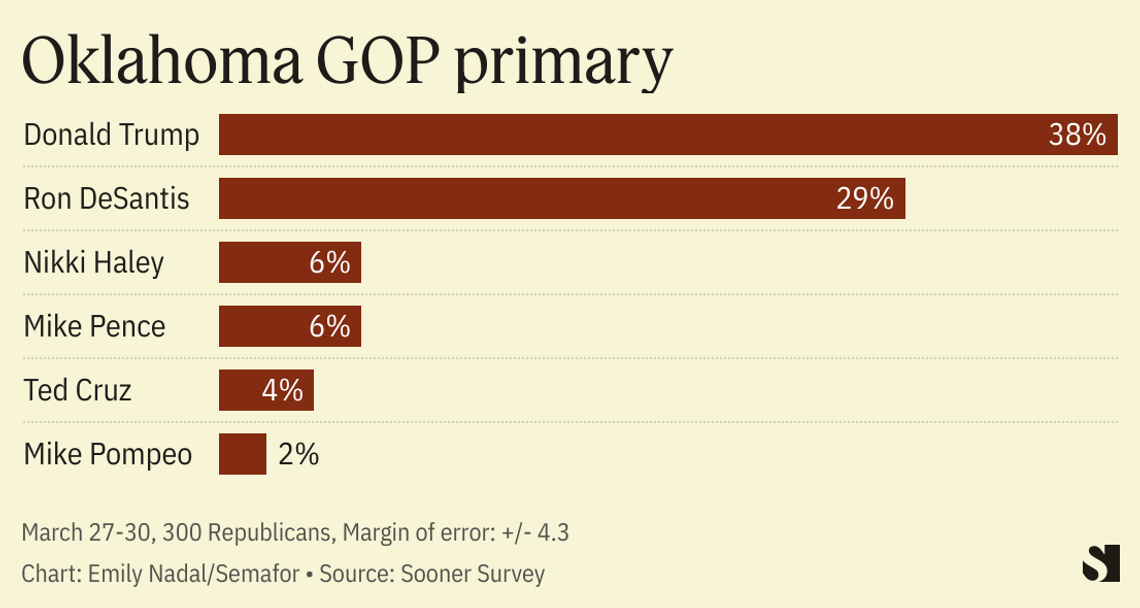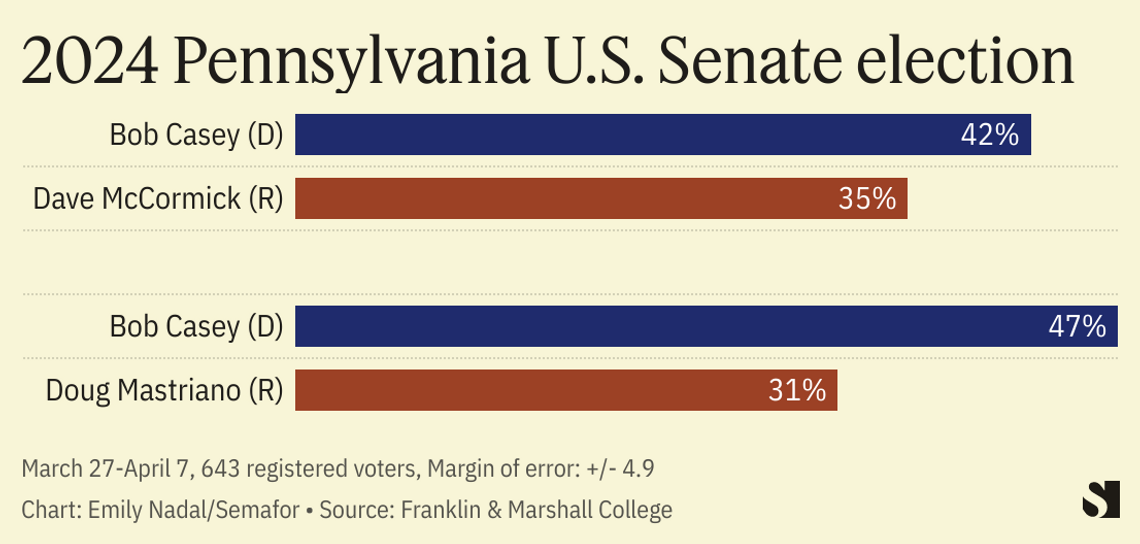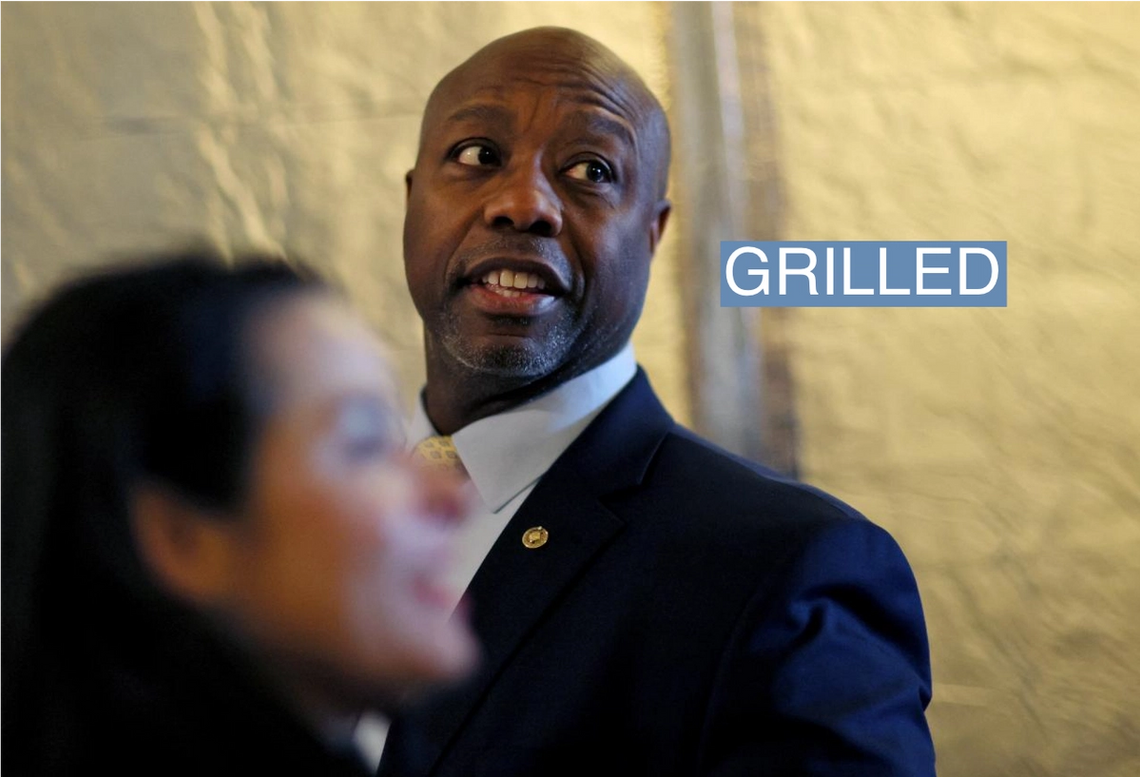 Joe Raedle/Getty Images Joe Raedle/Getty ImagesTHE NEWS In the 2024 Republican primary, the war on drugs is back on. Literally. Led by Donald Trump, all of the GOP’s official presidential contenders have endorsed a counter-terrorism operation against Mexico-based drug cartels, bringing tactics to the Southwest that America last deployed in Iraq and Syria — “just as we took down ISIS,” as Trump put it in a January campaign video. The idea, rejected by his cabinet when Trump floated it four years ago, is now mainstream Republican opinion. “The Mexican cartels ought to be designated as foreign terrorist organizations,” former Arkansas Gov. Asa Hutchinson told Semafor in an interview, shortly before launching his campaign. “This administration has not done it, and it would help law enforcement be able to go after them in a more effective fashion.” Former U.N. Ambassador Nikki Haley endorsed the terrorist designation — “just like we dealt with ISIS” — last month, during a visit to the Texas side of the border. Vivek Ramaswamy was already there, telling Semafor that “tactical operations, drone strikes, airstrikes and limited ground intelligence-guided capability could lead to, I think, even a higher probability of success than we had when we were going in to take the fight to ISIS.” After dabbling with criminal justice reforms during the 2010s — Donald Trump himself proudly signed the First Step Act, which shortened some drug sentences — Republicans are back on war footing thanks to the surge in fentanyl overdose deaths in recent years. In state capitols, lawmakers are talking about once again ratcheting up sentences for drug sellers. In Washington, a Republican-sponsored bill would let fentanyl dealers be charged with felony murder. In Arizona, another proposal would charge dealers with homicide. And in Tennessee, state Rep. Mike Sparks wants to classify fentanyl as a “weapon of mass destruction,” charging traffickers with terrorism, eligible for the death penalty if convicted. “Look at the damage it can do,” Sparks told Semafor. “I think it’s done on purpose. I think that there are a lot of things being done on purpose to undermine this country.” Some bills, like Sparks’s “WMD” proposal and the Ashley Dunn Act sponsored by Arizona state Rep. Quang Nguyen, have run into constitutional concerns. “If the Supreme Court is going to slap me down, that’s their job,” Nguyen told Semafor. “Any member on the floor today saying that this bill is unconstitutional, guess what? That’s their opinion. I’d be happy to work with members to make it better, but I don’t need to pre-empt myself from introducing bills.” DAVID’S VIEW The overarching Republican critique of Joe Biden’s presidency is that it encourages disorder, and that his White House never grabs the tools that could defeat it. The administration does have its own fentanyl-fighting strategy; Operation Blue Lotus, launched last month, pooled DHS resources to seize what it said was 900 pounds of fentanyl in one week. But it has ignored Republicans who call for direct military action. Six months ago, in a paper relaunching the terror designation concept that was abandoned during Trump’s presidency, ex-Trump DHS deputy Ken Cuccinelli lambasted “the Biden administration’s willful refusal to defend the country.” In this view, just as Democratic timidity to fight cartels risks lives, their pursuit of harm reduction and criminal justice reform leads to more fentanyl overdoses. Treating cartels like ISIS cells and dealers like murderers is their response. Trump, as usual, set the bar. Early in his presidency, Trump told then-Philippines President Rodrigo Duterte that he’d done “an unbelievable job on the drug problem,” during a drug war that killed at least 8000 Filipinos. (Duterte notoriously promised to kill 100,000 criminals during his first six months in office and claimed to have personally executed some when he was a mayor.) Last year, at a rally in Texas, Trump talked enviously about Chinese trials of drug dealers that take “two hours” instead of years, putting convicted dealers to death. “You look at Singapore, you look at other countries, wherever they have the death penalty, zero drug problems,” Trump said. “Drugs are causing us tremendous problems.” For libertarian-leaning conservatives, who for a period seemed to be gaining ground on drug policy within their party, the reversal has been a rude shock. Jeffrey A. Singer, a doctor and Cato Institute fellow who testified at a House hearing on the fentanyl crisis, saw Republicans pursuing a dead-end strategy; he was astounded to hear them cite America’s long post-9/11 counterinsurgencies as models. “It’s the same way people react when they see a mass shooting — we need to do something,” said Singer. “If you could institute a miserable, prison-like existence for 300 million Americans, then yes, that would cut down on the drug trade.” But the ground is shifting, and quickly. Last year, when a memoir from former Trump Defense Sec. Mark Esper confirmed Trump’s support for military strikes against cartels, it was covered like a scandal. This week, in a Fox News interview about the drug trade, House Oversight chairman James Comer asked why it wasn’t allowed. “One of the things we learned post-Trump presidency is that he had ordered a bombing of a couple of fentanyl labs, crystal meth labs, in Mexico, just across the border, and for whatever reason, the military didn’t do it,” Comer said. “I think that was a mistake.” ROOM FOR DISAGREEMENT Critics of the GOP’s new line say it’s less about fentanyl — no one in government disagrees with fighting traffickers — and more about its focus on “law and order” politics and the border. “Republicans’ zealotry to blame immigrants at every opportunity means that they would rather politicize the real challenges of combating fentanyl,” said a spokesman for the immigration reform group America’s Voice this month. THE VIEW FROM HUMAN RIGHTS GROUPS According to Harm Reduction International, death sentences for drug offenses doubled worldwide last year. Mimicking those penalties in the U.S. would do little to help the fentanyl problem, they argue. “The use of the death penalty for drug crimes is simply a violation of international human rights standards, and it does not have a unique deterrence effect on drug trafficking,” said Ajeng Larasati, the Human Rights Lead at HRI. | 








